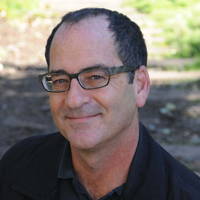This year's election cycle was marked by the emergence of two polar-opposite political forces: the Occupy movement and power brokers. Occupy is characterized by a chaotic mass of humanity who are disenfranchised from our political and economic systems, and can't quite find the words to say what they want. Occupiers have been left without a place to sit because they aren't tuned to the rhythm of capitalism's current version of musical chairs.
Power brokers know what they want, and know how to get it. They keep their seat at the table because they own the table, or at least know which room it's in. In San Francisco, Rose Pak and Willie Brown are less notable for their pull at City Hall -- Brown is an influence peddler hall of famer -- as their willingness to flaunt it. Every executive branch and legislature in the country is encircled by a network of power brokers -- enough to fill each city's public park -- mostly representing economic interests, but also ethnic groups, communities and themselves. Their power can be measured by how fast their phone calls are returned, whether the legislative bills or permits they're backing pass and who's granted a government contract.
The difference between power brokers and Occupiers is that if their roles were switched -- the brokers pitched tents at Justin Herman Plaza, and Occupiers were ushered into political backrooms -- before night fell the brokers would have arranged publicly provided room service, while the Occupiers would still be discussing their agenda. That's the problem. Power brokers know what to do, but have no democratic support to do it; they follow their own, or their clients' interests. Occupiers are embedded in democracy, but they haven't a clue what to do, or how to get it done.
It's not a new problem. The tension between the powerful few and powerless many is why our political system is based on representative, not direct, democracy. The power of brokers is supposed to be tempered by elected officials, who know what they're doing, but do it in response to the people who put them in office. But today more often than not, those people are the power brokers.
Almost three-quarters of San Franciscans over the age of 18 did not bother to vote last election, with similar participation rates throughout California. The system isn't so much broken -- it's not being used. Until it is, Occupiers will be left fluttering their hands in quiet frustration, while power brokers do the talking for them.
